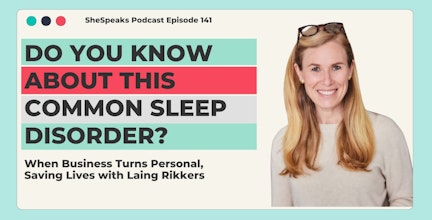A Hormone We Call Friend

If you've nursed a baby, you’ve experienced that incredible emotion, looking down at that lump of love tugging on you. That sensation begins with the release of oxytocin. But don’t worry, if you haven’t nursed, you’ve still had that exact same feeling when spending time with your close friends: heartfelt hugs, sharing in good news, knowing that she’s there for you, and being there for her in bad moments, time consuming disasters and when its simply that time of the month, when, being irrational is, well, rationalized: your hormones are to blame.
Turns out, oxytocin is the one particular hormone which aids in forming and maintaining relationships, and while women are bonding with friends, they are producing more of the good stuff. When something bad happens to you, your first instinct is that you have to call Josie or Fiona or Jacqui or Kendall…
According to Gale Berkowitz’s UCLA Study on Friendship among Women, “when oxytocin is released as part of the stress responses in a woman, it buffers the fight or flight response and encourages her to tend children and gather with other women instead. When she actually engages in this tending or befriending, studies suggest that more oxytocin is released, which further counters stress and produces a calming effect. This calming response does not occur in men, says Dr. Klein, because testosterone which men produce in high levels when they're under stress seems to reduce the effects of oxytocin. Estrogen, she adds, seems to enhance it.”
In fact, having friends is as important to a healthy life as not smoking or carrying extra weight. (What happens to the oxytocin levels when your best friend tells you that indeed your butt looks fat in those pants?) The way we respond to stress has significant implications on our health, and may explain why women live longer than men. Men brood in a dark room alone. Women put on a pot of coffee or open a bottle of wine and talk, cry and laugh it out. Women who have close friends who lose a husband are “more likely to survive the experience with out any new physical impairments or permanent loss of vitality. Those without friends were not always so fortunate.”
Are you fortunate? Could you imagine your life without your oxytocin suppliers: your best friend, your gal pals, the women in the wine club, the mommies in play group?
Hanging out with your girlfriends is not just fun; bonding over a latte or a pinot noir isn’t just relaxing: It’s been scientifically proven to be good for your health.
Have you ever felt the 'oxytocin friend effect' take over a stressful situation and leave you feeling calm?
Do you and your friends connect when things get overwhelming?
Make a Comment
 by
armyfamilyof6 | Fort Campbell, KY
by
armyfamilyof6 | Fort Campbell, KYdida, i went through the same thing when i was nursing my daugher, i lost over 20lbs in a month from lack of appetite. I was never hungry when i nursed, after i stopped nursing her i started eating good again. I dont know why it happens though. I like this article, its explains a lot to me that i never really thought about before.
 by
didama | MAPLEWOOD, NJ
by
didama | MAPLEWOOD, NJThis is really interesting. One thing that I've always experienced while nursing is a lack of desire to eat. I can't quite explain it and I've tried to describe it to other girlfriends who have also nursed. No one knows what I'm talking about! In fact, most claim to be much hungrier while nursing. Its not that I never want to eat because, I eat quite well. Its just while I am actually nursing, I have no appetite and literally can not eat during this time.
Not sure what it is. Hmmmm...








_10242023164832.jpg?max-w=432&max-h=220&fit=crop&auto=format)

_08172023152001.jpg?max-w=432&max-h=220&fit=crop&auto=format)



 (3)_04112023125932.jpg?max-w=432&max-h=220&fit=crop&auto=format)


_01252024061712.jpg?max-w=432&max-h=220&fit=crop&auto=format)


 (6)_07082023175312.jpg?max-w=432&max-h=220&fit=crop&auto=format)
 (1)_05192023144508.jpg?max-w=432&max-h=220&fit=crop&auto=format)
 (37)_05032023114523.jpg?max-w=432&max-h=220&fit=crop&auto=format)
 (36)_04272023152113.jpg?max-w=432&max-h=220&fit=crop&auto=format)